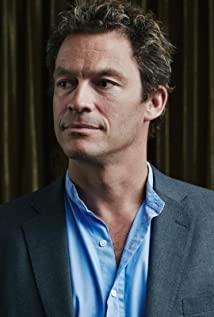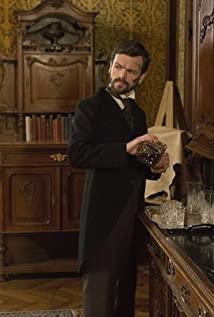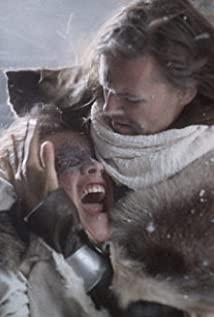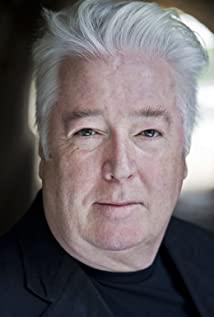The story takes place in Lithuania in 1944. The German army entered and Hannibal's family took refuge in a villa in the forest. German bombers suddenly arrived, killing Hannibal's parents, leaving only Hannibal and his sister Misha. That night, five German skirmishers who stole the property of the war dead broke into the villa in order to avoid the pursuit, seized the brothers and sisters, and occupied the villa. Afterwards, heavy snow covered the mountains and food was in short supply. The starving German soldiers set their sights on the siblings. Misha had pneumonia, and the soldiers chose to eat her first. When the war ended, Hannibal escaped from the villa and entered the orphanage, which turned out to be his family's castle. The proletariat does not seem to pay much attention to the psychological problems of children. In the orphanage, Hannibal was still treated harshly because of his strange personality. So Hannibal escaped from the orphanage and found his uncle's house in France according to clues. Later, he was raised by his uncle's widow, Mrs. Zi from Japan. He learned kendo, worshipped samurai, and eventually became a medical student with a soft spot for anatomy. The revenge is ready, and the fun begins. Following the residual memory, he found the German soldiers who killed Misha (they were not interrogated) and tortured them one by one.
The transformation process of Mr. Hannibal from an innocent and loving sister-in-law to a black-bellied, coquettish, intelligent murderer is the main line of the film.
In the first stage, in the orphanage, the uncle, the dormitory, spoke harshly to Hannibal who was out of the ordinary, and he had a relationship with Hannibal because the boy refused to sing. The night Hannibal escaped from the orphanage, Hannibal went to his uncle's bedside, and the sickle was already gesturing around his neck. But Hannibal didn't do anything in the end, and just used the trap to play a prank on the uncle of the host. At this time, Hannibal was just a teenager with a strong desire for revenge.
In the second stage, at Mrs. Zi's house, although he was cared for by Mrs. Zi's mother and lover, he was also influenced by Japanese Bushido, the most important of which was the education of "shame". The Japanese are obsessed with revenge, and in their view, revenge is a way to wash away stigma, even by killing it is moral. They hope to achieve the state of "no-self" through practice, which is not so much detachment as it is to get rid of the constraints of moral sense. Therefore, when Hannibal killed the butcher who had insulted Mrs. Zi for the first time, what Mrs. Zi showed was not fear or restraint, but saying "you don't have to do this for me" and helping him hide the crime. It is a kind of gratitude and repayment. This Japanese culture of revenge and morality is the basis for Hannibal's fear of killing, and even his enjoyment of it.
In the third stage, Hannibal tortured and killed his enemies one after another, during which he did not show the cannibalistic desire in "The Silence of the Lambs". The only time he cannibalized was to cut off the cheek of the first enemy and make meat skewers with mushrooms, because the soldiers did the same to his sister back then. At this stage, he just takes revenge according to planned steps, and gradually improves his killing skills.
Stage 4, when Hannibal kills his penultimate enemy, he tells him "If everyone who eats your sister is damned, then you are damned yourself, because you also eat when you're unconscious. She. Your two little lips were sucking that spoon all the time...". This sentence completely broke Hannibal, who had always considered himself a defender of justice and qualified to punish war criminals. Yet even he himself cannot resist the instinct of human existence, the attack of hunger. This made him completely despair of human nature. The morals and ethics we have formulated are fragile, and even the affection he thought was sincere was in fact incapable of confronting nature. Then he might as well follow his own will and not have to restrain his desire to kill. Instead, he should enjoy it because that's part of life.
It was terrifying when the group of Germans broke into the villa. They howled and laughed wildly around Hannibal and Misha, as if savages had found prey to deceive. Later, when they found that they could still eat the two children, they cast their hungry eyes on them, as if they were not two people, but just two pieces of food. Objectively speaking, for the dead, the flesh and skin on the body are nothing but organic matter, no different from pigs, cattle and sheep. But since 30,000 years ago, when we were still cavemen, humans have learned to bury their dead counterparts, and even decorate their graves with paint and flowers. The corpse terrifies us, the soul, life, blood, the unknown all terrify us. This fear is so ingrained that, until now, the prohibition of cannibalism has become a natural moral law. But I think anyone who has seen that smirk, that kind of hungry eyes, his bottom line will be penetrated. So I found that I was so disgusted and afraid of others screaming, cheering, and booing, not because I thought it was incompetent, but because it made me feel savage and out of civilization, as if I was a primitive who cried and drank blood at the prey again. people.
We are afraid of war, not only the death of relatives and friends, but also the wanton breaking of the ethics and morals we believe in. In fact, for survivors, the moral disorientation, and the distrust it creates in human society, is more devastating than the death of a loved one itself.
Hannibal is good at analyzing the mind because he never stops analyzing himself. He knows good people because he was good; he knows evil because he is evil now.
There is one more detail in the film that surprised me. One of the five soldiers, whose conscience was still alive, persuaded the boss to go outside the house even if he wanted to kill the little girl, and not in front of Hannibal. Later, when the Russian army bombed the hut, he glanced back at Hannibal when he escaped, but because of the delay of this glance, he was killed by the collapsed house. This symbolism is not uncommon in movies.
A person who has experienced decades of war, revenge, and killing has surpassed the moral law of human beings. He views people in the outside world as we view ants. No wonder when he was facing the prison, facing the rookie FBI Clarice outside the glass wall, when he heard her say that when he saw the silent lamb waiting to be slaughtered that night, he could be so playful and lighthearted. For him, life has truly become a game. Enemies are PK objects, and mortals are leveling monsters and daily food. Clarice is just a slightly smarter and funnier version of stupid, boring humans.
That's why I'm afraid of morality. It's the boundary between two worlds, and once you cross it, I'm afraid the world I'm in now will become absurd and pedantic. I was born to be a vulgar ant, and I still hope to be so conscientious and conscientious as to be a prison.
2013-12-20
View more about Hannibal Rising reviews











